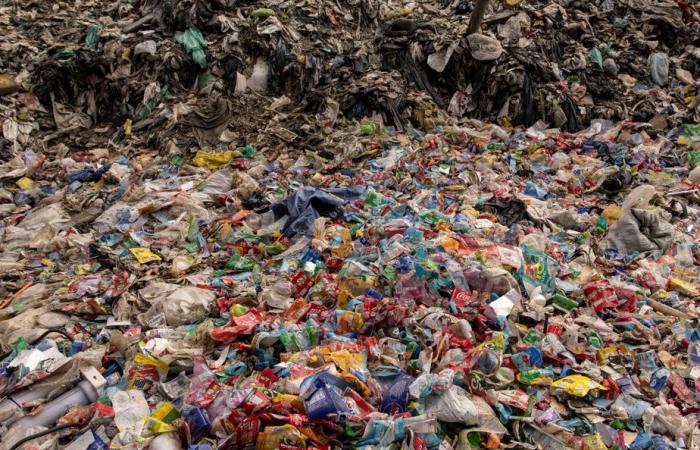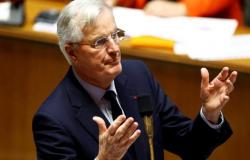(Busan) The representatives of more than 170 countries gathered in Busan in South Korea to try to forge the first global treaty on plastic pollution produced a summary text on Friday which left environmental NGOs and industrial players unsatisfied, before a diplomatic battle in the final stretch.
Posted at 7:03 a.m.
Isabel MALSANG
Agence France-Presse
With only 48 hours left to agree, according to the rules set at the start of the UN process two years ago, the synthesis (called “non-paper” in diplomatic jargon) proposes a mechanism for controlling the global production of plastic, which was requested by the coalition of the most demanding countries on the subject.
But it does not contain any list of chemicals deemed dangerous for human health, referring this subject to future conferences of the parties (COP), according to the document posted online on the conference website.
The text still contains many unresolved issues, left in brackets, or different possible “options”. It therefore includes eight possible definitions of what plastic is, and five for what “plastic pollution” is.
The text left environmental activists unsatisfied, who wanted a much more coercive basis for discussion to restrict the effects of plastic over its entire lifespan, from the creation of virgin polymers to the treatment of waste.
“We call on countries not to accept the low level of ambition contained in this draft treaty,” declared Eirik Lindebjerg, who follows the plastics negotiations for the WWF.
“Treaty for treaty’s sake”
“The non-paper is a poor attempt to force us to find a conclusion and get a treaty for treaty’s sake, with a plethora of options, some of which could be calamitous. The only positive element is that it includes an overall production reduction objective,” responded Graham Forbes, head of the Greenpeace delegation in Busan.
“The new text compiles the dreams and nightmares of each nation present at these negotiations. It is too weak to deliver an ambitious treaty that the majority of governments, businesses, and citizens want,” said Jodie Roussell, responsible for monitoring the negotiations at Nestlé, and spokesperson for the business coalition for a treaty. world on plastic.
“This text does not provide the certainty that businesses need, clear and legally binding rules,” she added.
The coalition includes global giants in the food industry, distribution and textiles that use plastic, from Coca-Cola to IKEA, including L’Oréal and Unilever.
“Eat plastic”
“The text is not perfect, but I think it can be a good basis if others have the same opinion,” reacted a European diplomat, requesting anonymity, with 48 hours remaining. negotiations.
“It is good to have a treaty in 2024 which deals well with the subject of a reduction in production”, also rejoiced the French Minister of Energy Olga Givernet, who had just arrived from Paris to attend the end of Busan negotiations.
“We are waiting in the next two days to be able to refine positions on a subject that could potentially be historic,” she said.
But many tensions and uncertainties persist among countries.
The draft treaty provides in particular an option which would allow the total deletion of the article providing for production control, as had been requested by Saudi Arabia during the debates since the beginning of the week.
The creation or not of a new international fund to support developing countries is also not completely settled.
“We have to make compromises to reach consensus,” stressed Juan Carlos Monterrey Gomez, the chief negotiator of Panama, a country which defended a quantified objective of reducing production and agreed to include only an unquantified objective to obtain wider assent.
Addressing countries opposed to reductions in plastic production, the Panamanian, known for his very strong interventions during the debates, told them “let us decide and clear the floor”.
“The Gulf States want to defend their economies with fossil fuels. And us then? ” exclaimed the representative of Micronesia, Andrew Yatilman, bringing everyone back to the essential objective: plastic and chemical pollution which threatens ecosystems and even human life: “If nothing is done, we will soon eat plastic instead of eating fish,” he said.






